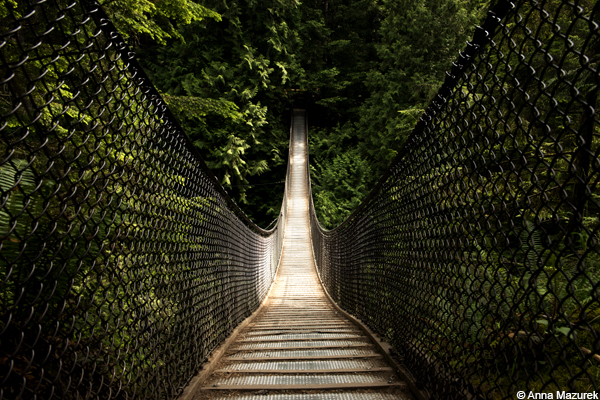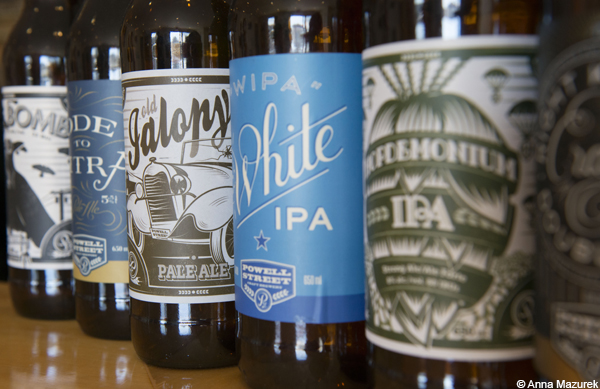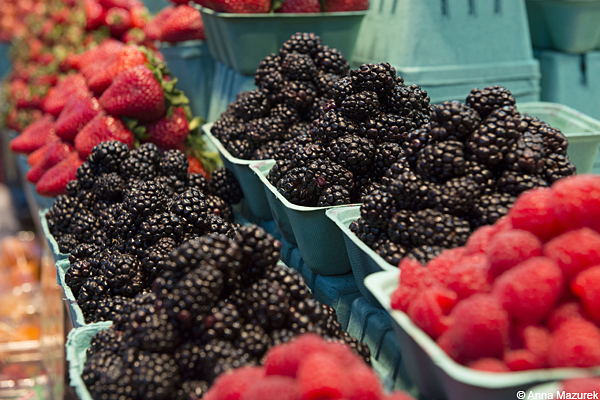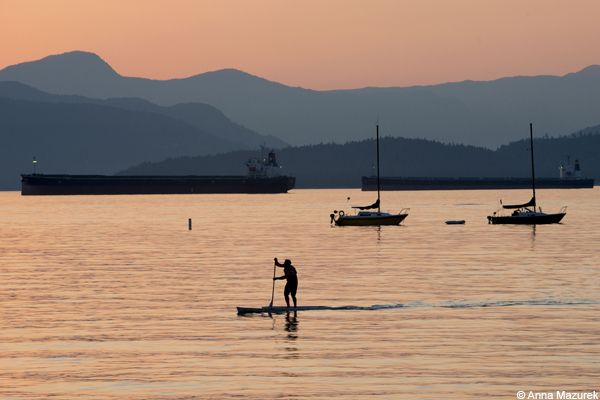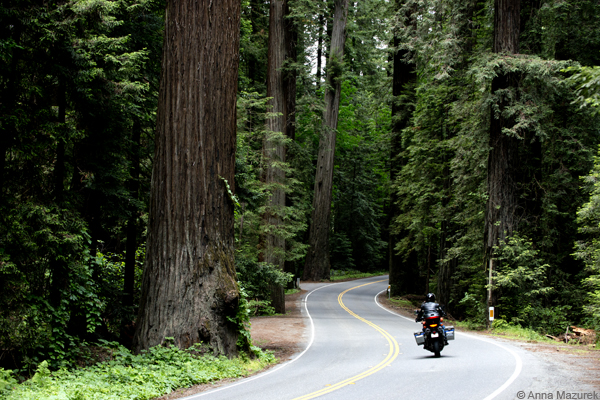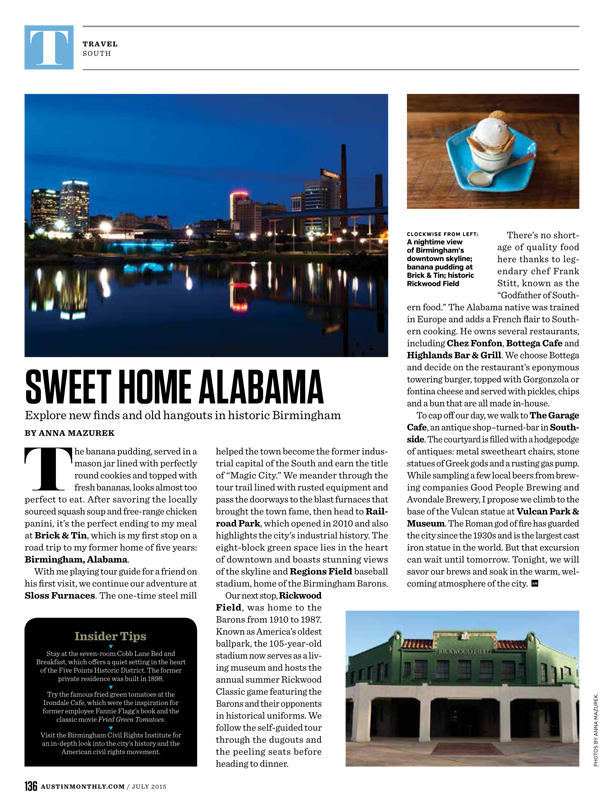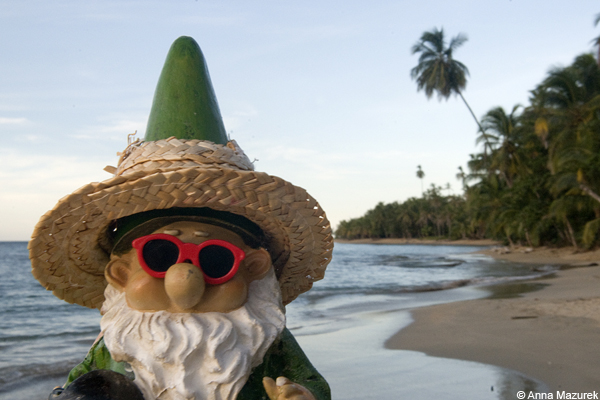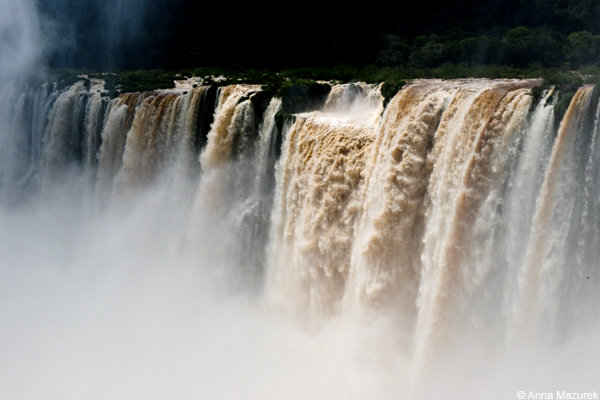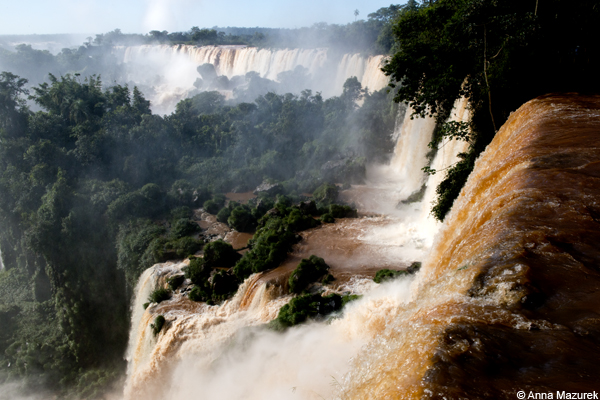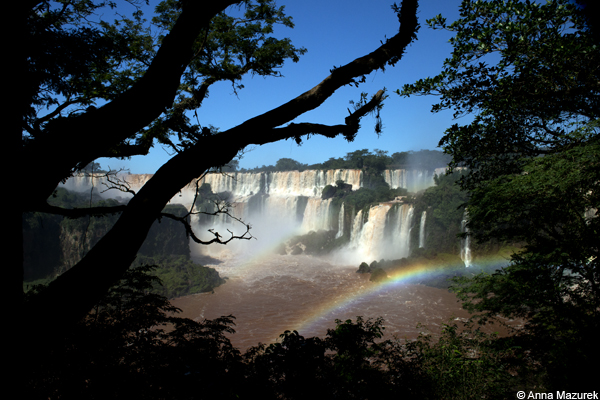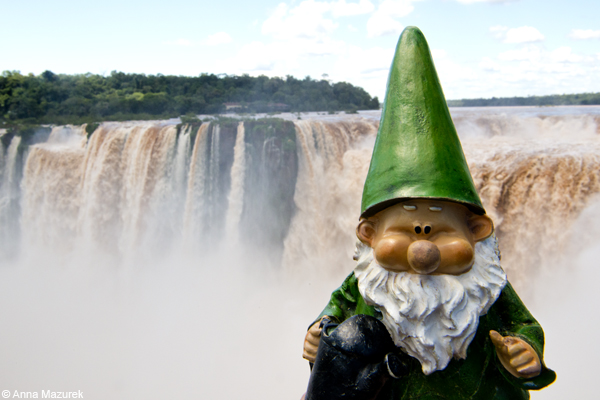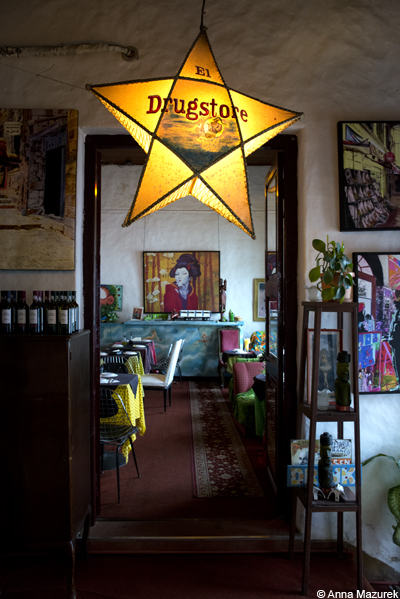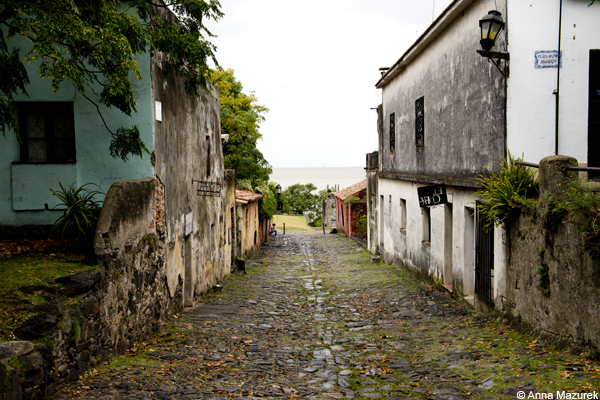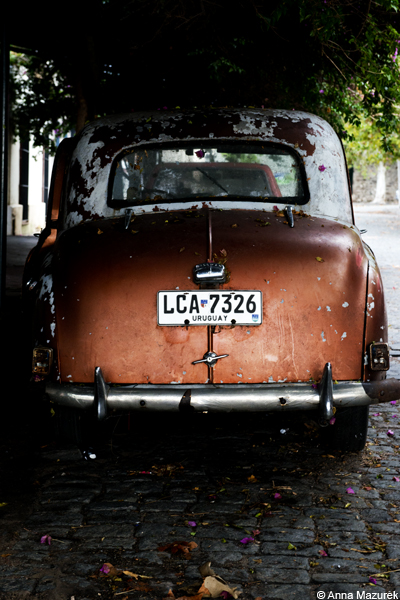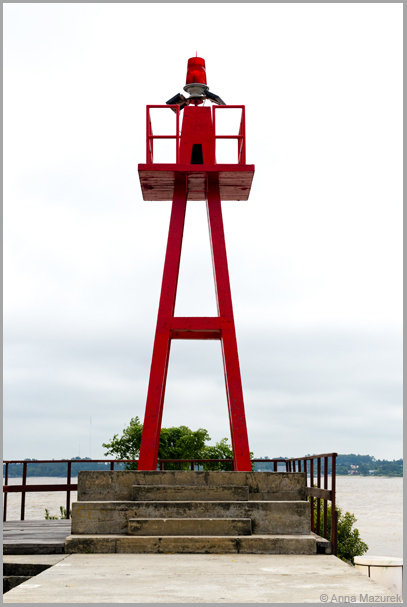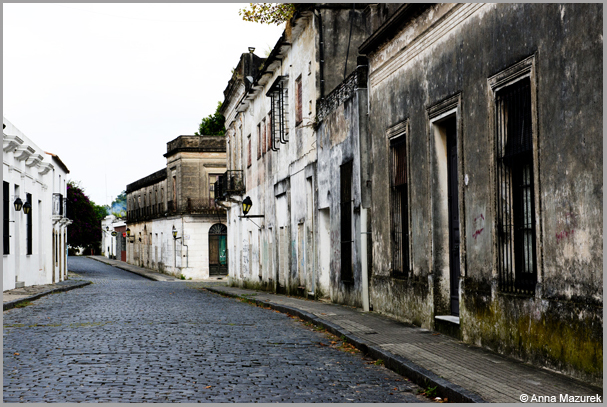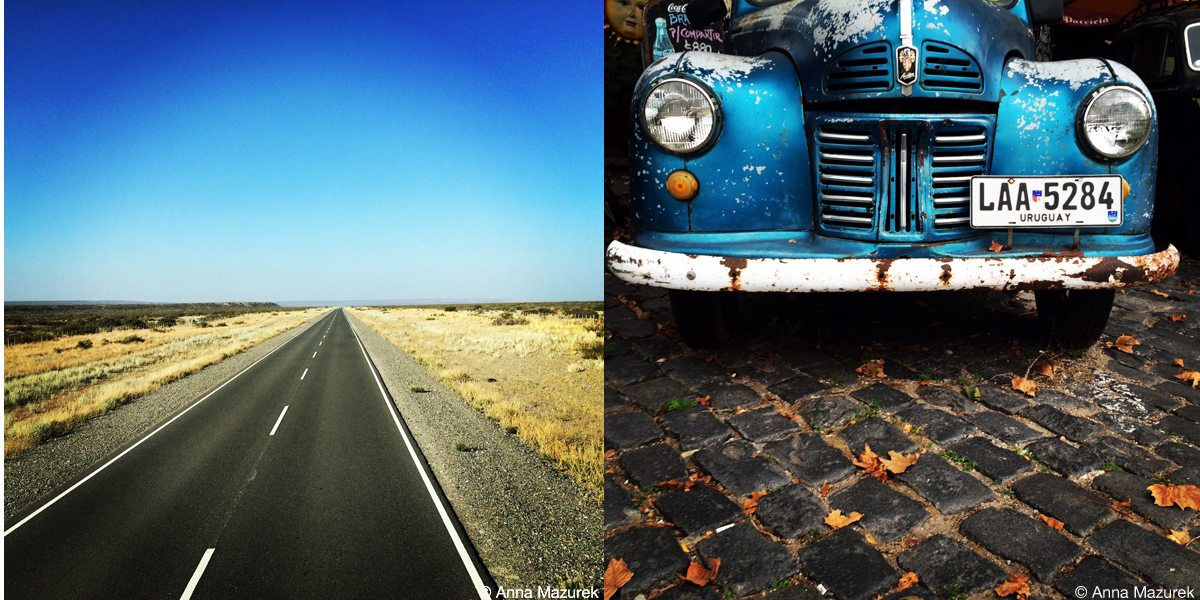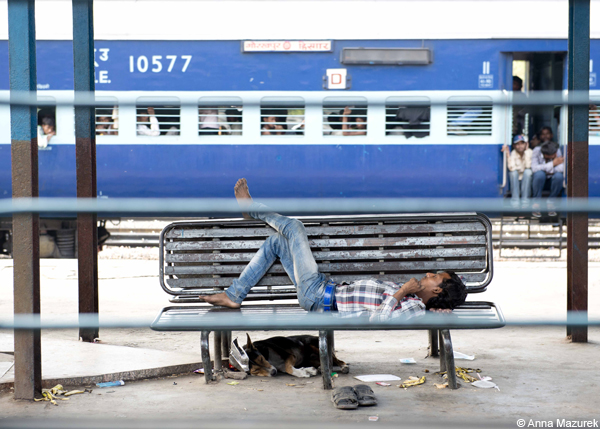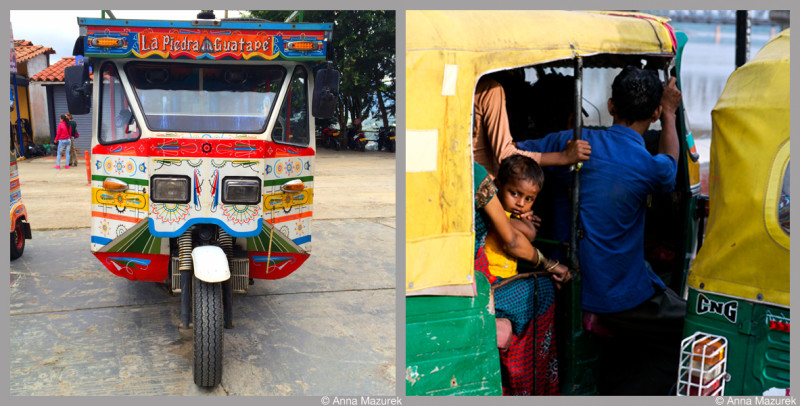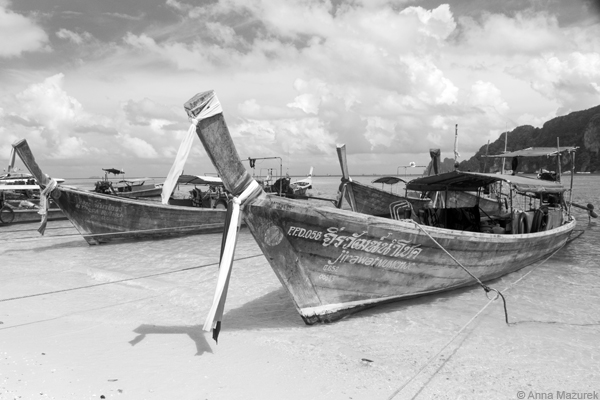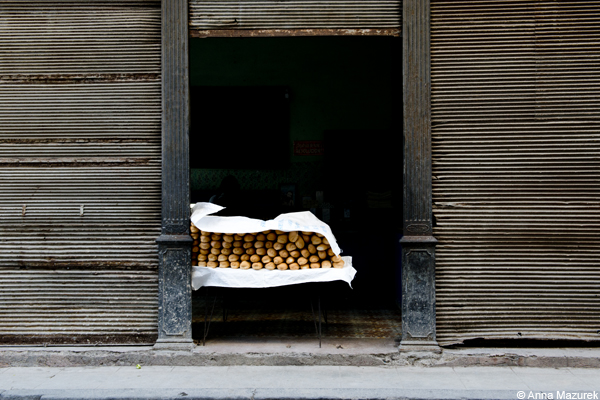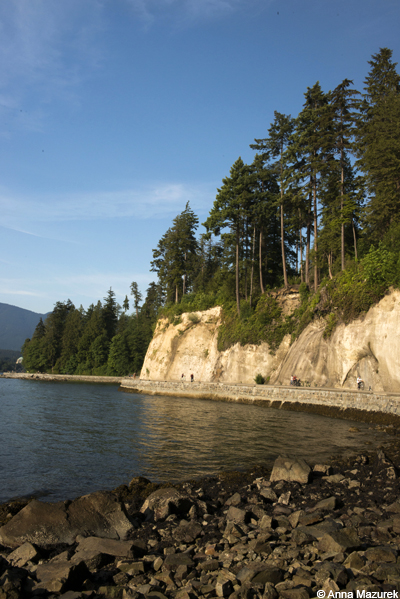
Top 5 Things to do in Vancouver
Vancouver knows the key to my heart—seaside running trails, fresh berries and craft beer. The city is one of my favorite in the world. It’s right up there with Buenos Aires, Charleston and Luang Prabang in Laos.
For more on my Vancouver trip, check out my new travel column in The Denver Post today: https://dpo.st/1UaZtK9
Here’s my Vancouver Top 5:
Stanley Park
If you only visit one place in Vancouver, make it Stanley Park. It’s simply amazing. Even though I’m a runner, I loved biking along the stunning seawall and trails that lined the park. I found a shaded bench near the beach to update my travel journal, people watch and contemplate whether or not I should make Vancouver my new home.
Lynn Canyon Suspension Bridge
Lynn Canyon is a great place to spend a morning. The highlight is a 50-meter high suspension bridge, which connects to the park’s scenic hiking trails. The best part is that it’s FREE. (Don’t confuse it with the Capilano Suspension Bridge, which is $ 37.95 CAD.) Go early to avoid the tour buses that arrive at midday.
Brewery Biking Tour
I am proud to say I survived a 20-mile brewery biking tour unscathed! (The tour was organized by friends of friends.) Rent a bike and design your own tour! It is a great way to explore the city, exercise and support local breweries. Powell Street’s Old Jalopy Pale Ale, Parallel 49’s Gypsy Tears and Red Truck’s Ale were a few of my favorite brews and venues. Strange Fellows is also a nice, new brewery with a sleek tap room.
Tip: Red Truck serves food so it’s a great place to end your trip! The guys at Powell Street can tell you how to get to a great Chinese bakery (New Town Bakery) where you can get the BEST steamed pork buns.
Granville Island Market
My two favorite times of year are summer and berry season. My first stop in Vancouver was the Granville Island Market. The aisles of the covered market were filled with fresh local apples, fish and veggies. And, every kind of berry you can imagine. I ate my weight in berries.
Beaches
There’s no better place to be at sunset than a beach. Luckily, there’s plenty of options including Kitsilano and Jericho . Each one is filled with giant logs to sit on. Get there early to snag your own log seat!
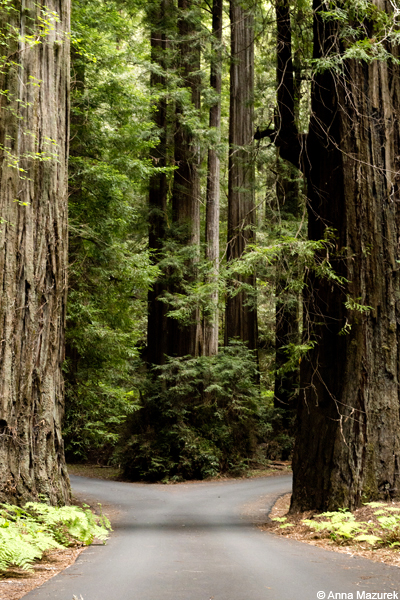
Road Trip: California Redwoods
We all have places that haunt us, the ones we daydream about but can’t quite seem to visit. Humboldt Redwoods State Park was one of those places for me. A friend of my father’s always talks about a road trip he did when he was young. After a bad breakup with his girlfriend, he headed West in his Camaro. He still raves about the Avenue of the Giants and the size of the trees. (He is a lumberman by trade.)
This year I was determined to make the trip happen. Since I normally add a little U.S. trip to the end of every long-term overseas adventure, I traded in a few frequent flyer miles (FF mile guide coming soon!) on a flight from Peru to San Francisco to visit an my old friend, Miles. We rented a car and sang ridiculously loud to the radio the entire drive.
There is nothing more humbling than nature. In 40 years, I will still be talking about the Avenue of the Giants just like my father’s friend.
For more on my trip, check out my new travel column in The Denver Post today: https://dpo.st/1JCWlvD
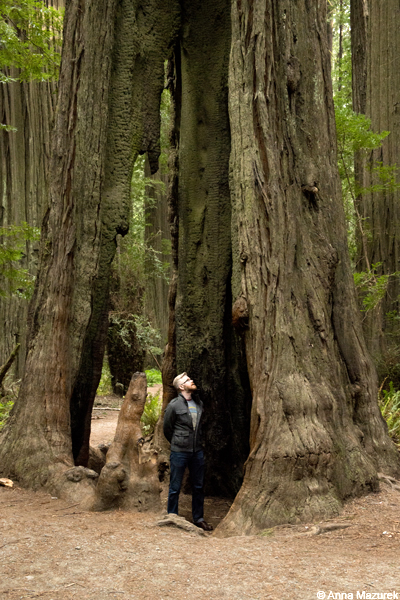
Many redwoods have hollow trunks caused by forest floor fires. Despite the damage, the trees are able to thrive.
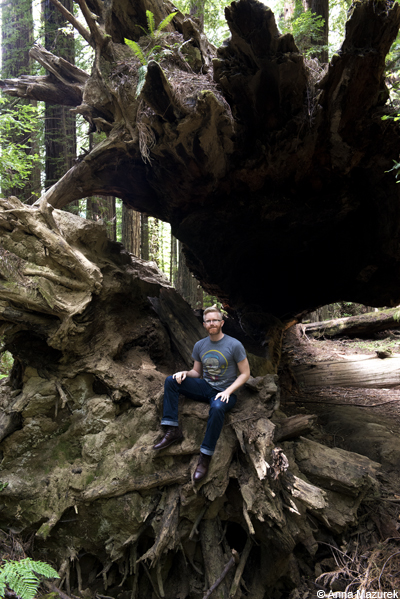
My friend Miles poses on the trunk of a fallen tree, which are a vital part of the forest eco-system.
Tips for Visiting Humboldt Redwoods State Park
- The park is open year-round and does not charge an entrance fee.
- Pay on arrival for campsites to avoid the online $8 service fee. Consider booking in advance if arriving late or during peak holiday weekends. Campsites are $35/per car.
- Free maps are available at the visitor center, campgrounds and www.parks.ca.gov.
- The entire park is very photogenic, but the 1.7-mile Drury-Chaney Loop Trail is particularly lush and green. The drive down Mattole Road, which branches off the Avenue of the Giants at the north end of the park, is stunning. Bull Creek Trail North is a beautiful, less populated walk but involves climbing over a few HUGE fallen trees.
Want to learn my secret to FF miles? Sign up for the email list! I’ll post a guide soon!
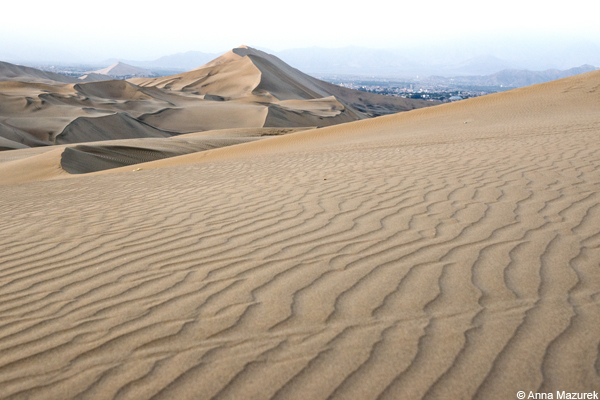
Sandboarding in Peru
The desert oasis of Huacachina is nestled between giant sand dunes in Southwestern Peru. The tiny town is famous for its palm-tree lined lagoon and sandboarding. It’s a must for any trip to Peru!
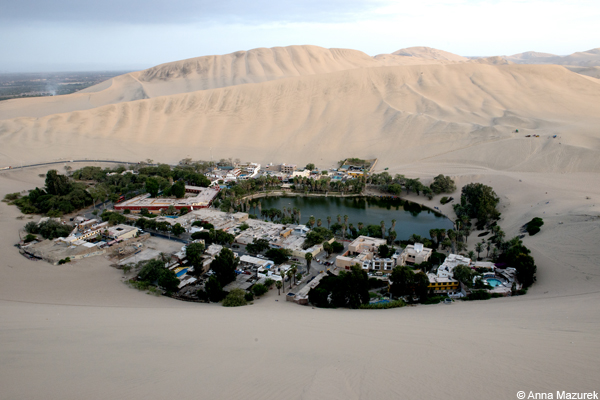
Climb the dunes for a great view of the natural lagoon.
Tips for Sandboarding in Huacachina
Getting to Huacachina. The tiny desert oasis is a 4km taxi ride ($2-3 USD) from the town of Ica, which is on a major bus route. It is easy to get to Lima (4-5 hours) and Nazca (2 hours) from Ica by bus. Fares for Lima are $12-21 and $11-15 USD for Nazca. The VIP class is not worth the extra money and offers no extra comfort for these short trips. It is worth it for longer trips in Peru because nicer buses are used. Snacks (ham/cheese sandwiches) are usually provided.
Use Safe Transport. Bus and taxi hijackings are safety concerns in Peru. Take a safe bus company like Cruz Del Sur. In Lima, they have their own private stations with safe taxis, which charge flat rates. Ask at the station in Ica for safe radio taxis. Hostels in Huacachina can set up a taxi and recommend companies. Traveling during the day is best.
Sandboarding. A dune buggy/sandboarding trip can be booked at any hostel in town. I recommend Banana’s Adventure Hostel. It was very clean. Plus, the food and staff were great. Accommodation, breakfast and a dune buggy/sandboarding trip are $28.76 USD. Book in advance because the hostel fills up quickly. An additional entrance fee of $1.19 USD must be paid to access the dunes except for those entering by foot. There is also an extra fee to rent professional sandboards. Tours are optional – rent a board and go out on your own.
Don’t Miss: Climb the giant dunes behind the town at sunset for an amazing view and a great leg workout. Tours to Ica wineries, Paracas and Islas Ballestras are available from Huacachina.
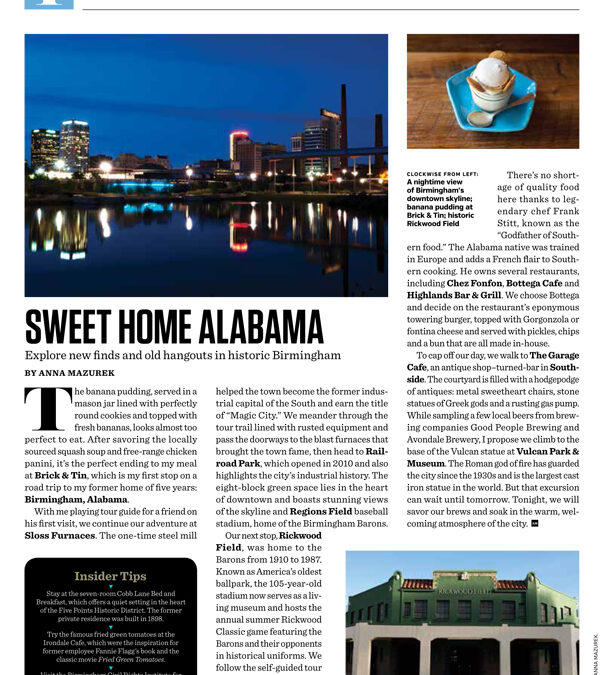
IN PRINT: Austin Monthly
There will be an entire chapter of my autobiography dedicated to Birmingham, Alabama. I wrote and photographed a travel story about my former home of five years for the July issue of Austin Monthly. Please pick up a copy or check it out online: https://bit.ly/1GUxOl9
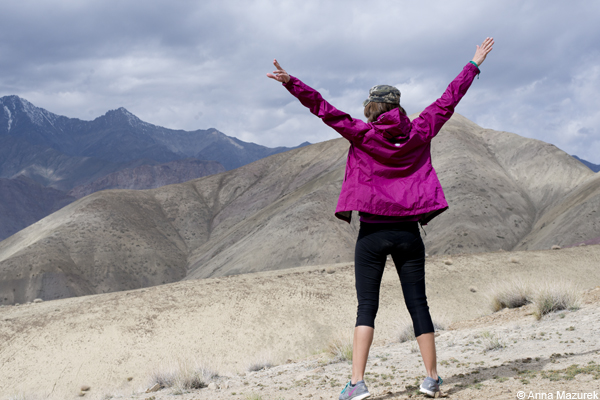
Anna’s Top 10 Packing List
After wandering the globe non-stop for the past seven years, I’ve become a pro at packing the most essential and useful items for my adventures:
1. Quality Rain Gear
Invest in a quality raincoat with zippered underarm vents to allow air flow in hot conditions. It also serves as a top layer for insulation in cold weather and helps with wind. There is a HUGE difference between waterproof and water-resistant. The latter soaks quickly and takes DAYS to dry.
Also, invest in rain covers for your bags. My Osprey day pack cover doubles as a camera cover in wet conditions when I still want to shoot. It’s always handy to have a disposable poncho that fits over you and your day pack, too.
Budget Tip: Check end of season sales at outdoor stores for deals. I got my Marmot jacket above for half-price at REI, when I was shopping for something else!
2. Headlamp
The headlamp is the single greatest invention after the burrito. Invest in one with adjustable brightness, direction and a red light option, which doesn’t attract bugs. It frees up your hands to search through luggage, hike or put up a tent in the dark. When you are camping and have to pee at 3 a.m., it will save you. Phone batteries die. Phones also fall in toilets and don’t have red light options. Trust me, it will change your life.
3. Stainless Steal Water Bottle & Water Filter
Plastic bottles are bad for both the environment and your health. Invest in a good insulated reusable stainless steel water bottle like Klean Kateen. Avoid aluminum and anything that’s not BPA free. Stainless is easy to clean and most importantly—keeps beverages colder longer.
Invest in a quality water filter. I recommend Sawyer’s Mini Filter. It’s tiny, inexpensive and easy to use. I’ve been using it for the past six months in Central and South America. Both items will save you a fortune in airports. Simply filter the bathroom sink water.
4. Dr. Bronner’s Magic Liquid Soap
Dr. Bronner’s is chemical free, biodegradable and smells great. Use it as body wash, dish soap and laundry detergent. Trust me, no other soap will make you or your clothes smell so fresh!
5. Sunglasses
Be kind to your eyes. Pack a pair of sunglasses with both 100% UVA and UVB protection. Don’t be tempted by the $3 Ray bans at the street markets in Asia. They aren’t real and will fry your retinas.
6. Peanut Butter
Grab a jar of natural peanut butter from Trader Joe’s or Whole Foods for $3 before you leave. It’s the best snack for camping, hiking or long bus trips. If you don’t like peanut butter, pack protein bars (not those sugary cereal ones) or hemp protein powder. (Protein bars should have a 2:1 ration of protein to sugar.) Trust me, it’s safer to eat peanut butter than most train station food. Grab fresh bread, bananas and honey for a yummy treat.
7. Combination Locks
Pack a couple sturdy luggage combination locks for your bags and hostel lockers. (Avoid those giant high-school-locker style ones because they are always too big for storage lockers.) Use them on your daypack to deter pickpockets in high theft areas and on public transport. TIP: Set the combination to your birthday so you won’t forget it.
8. Inflatable Neck Pillow
This saves me on every form of transport and takes up no space. There’s nothing worse than getting off a flight with jet-lag AND a stiff neck. It also doubles as a great camping pillow. Add clothing in the middle for extra padding. I’m in love with this Sea to Summit one!
9. Sunscreen
Seriously. Sunscreen can be difficult to find in remote parts of the world and even urban cities like Barcelona. It’s usually outrageously overpriced. In Asia, they add bleach to sunscreen because they value white skin. Save your money and health. Pack a good supply of natural zinc-based sunscreen with you. Aveeno and Neutrogena make natural zinc-based sunscreen for babies that’s easy to find. I packed this Ology zinc sunscreen that you can by at Walgreens or Amazon, for my trip and totally love it!
10. Quick dry towel or Sarong
I carry a small quick dry towel with me. Despite the size, it can dry your whole body, work as a hand towel and clean up spills. Some girls swear by sarongs – they are a towel, dress, skirt, blanket, changing room and mop all in one! I’m a big fan of these Sea to Summit towels.
What’s on the top of your packing list? Share in the comments below!

Guide to Iguazu Falls, Argentina
I checked Iguazu Falls off my bucket list last week.
Here’s a few photos and tips about visiting from Argentina:
Tips for Visiting Iguazu Falls in Argentina
Catch the first bus. The park opens at 8 a.m. daily. Catch the 7:15 a.m. bus ($100 peso return) from Puerto Iguazu to be one of the first people in the park. Start with the Upper Circuit Trail – you’ll have it all to yourself! Then, walk the Lower Circuit Trail afterwards. Photo tip: Wait until after 12 p.m. to visit the Devil’s Throat viewpoint. The light is best in the afternoon.
Get your ticket stamped. Admission is reduced by 50% if you visit a second day, but you must get your ticket stamped before you leave the park. Iguazu Falls (Parque Nacional Igauzu) admission is currently 240 pesos as of March 2015.
Pack a lunch. Food in the park is expensive. Grab a pre-made sandwich for a couple dollars at a bakery in Puerto Iguazu. The best bakery is on Avenue Guarani near the corner of the intersection with Cordoba.
Watch the heat. Bring sunscreen, extra water and an umbrella for the sun. It’ll save your skin!
Bring your passport. There is a bus from Puerto Iguazu bus terminal that goes to Brazil side of the park. If water levels are high, mist will severely limit visibility. American’s don’t need a visa to visit for the day.
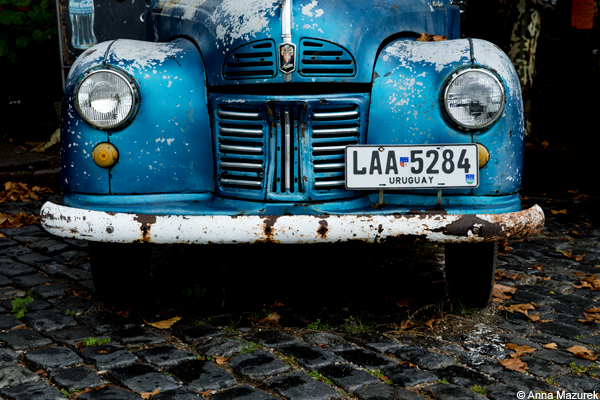
A Photo Guide to Colonia, Uruguay
Colonia is a photographer’s dream – quiet cobblestone streets, rusting classic cars and colorful, crumbling colonial buildings. The former Portuguese settlement and Unesco World Heritage site is 50 km from Buenos Aires by ferry. The town’s location made it a haven for smugglers and was later succeeded to Spain in the 1700s. Frequent ferries make it a popular day trip from Buenos Aires because the ATMs allow withdrawals in USD, which is heavily coveted in Argentina due to high inflation. The standard rate is 8.78 pesos while the current blue dollar rate for the black market is 12.8 pesos per dollar.
How to get to Colonia, Uruguay from Buenos Aires
Logistics: Frequent ferries operated by Colonia Express, Seacat and Buquebus take a little less than two hours from Buenos Aires. The later also offers slower boats. Prices are cheaper in advance. Some operaters require you to book online, but don’t be fooled by the cheap fares. The main expense are the taxes added at checkout. I booked online a week in advance and paid $500 pesos roundtrip. I met other travelers who paid $700-$1000 pesos last minute at the ferry office in Buenos Aires. Prices valid for March 2015. Tips:
- Beware of ATM limits. ATMs allow withdrawals of USD in $300 increments and charge $6 USD/transaction. (To avoid ATM fees, refer to Travel Banking 101.) Your bank might block your card here because it’s a high fraud area. My card got blocked twice in three days.
- Pay with a VISA credit card to avoid paying tax. The VAT is not included on foreign credit card purchases in restaurants until July 31, 2015. This saved me roughly 18%. Refer here for official information.
- Eat at Buen Suspiro. This cozy restaurant on Calle de los Suspiros has the best food in Colonia. They specialize in picadas, large shared appetizer plates. They take VISA credit cards so take advantage of the VAT discount!
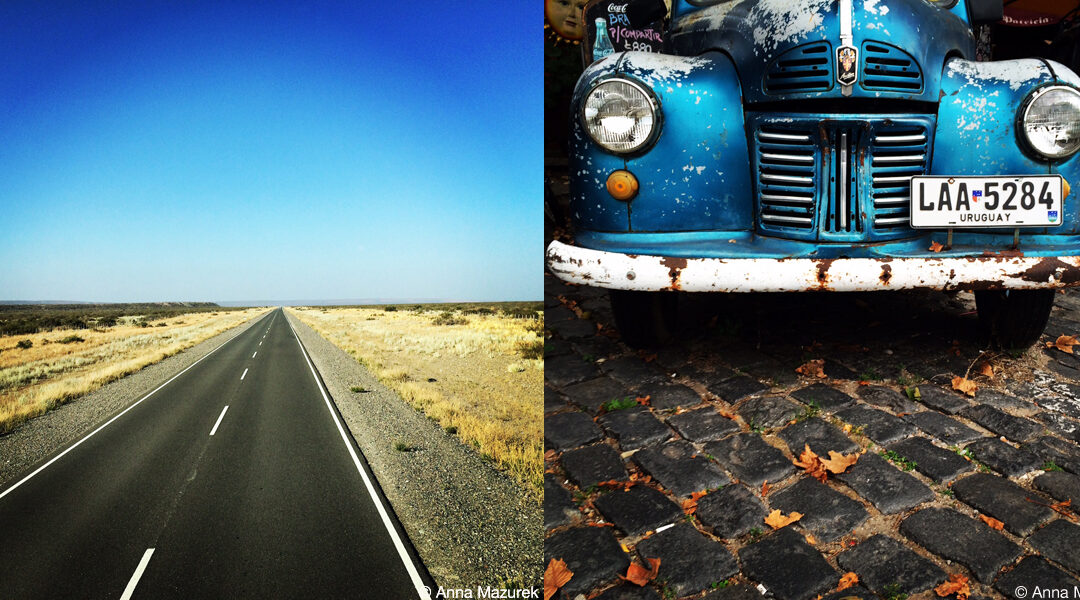
Eliminate Your Bills
A Guide to Eliminating Monthly Bills
In my post about Saving for Travel, I mentioned eliminating bills. If you are traveling long-term, you should have almost NO bills. That’s right NONE. Refer back to your list of monthly bills. Cut off all monthly/annual subscriptions: Pandora, Hulu, Amazon Prime, etc. Then, follow the steps below to make your main bills disappear.
Rent/Mortgage
Sublease/Rent out your place. Sell your house and excess stuff. Ask your parents or a friend if you can store what’s left in their garage. Offer to pay a small fee or buy them a wool carpet from India. (Luckily, my parent’s own a furniture store with plenty of storage. The few things I own get stored in a corner or the closet in my old room.) Airbnb is a great option to make money while you travel. You can pay a percentage to a friend/family member to manage/clean the place while you are gone.
Car/Truck/Motorcycle
Option 1: Sell it.
Option 2: Rent it.
If selling scares you, rent your vehicle out to a friend/cousin/your dry cleaner’s dog walker. We all know someone who needs a car or has one that only cranks if you kick it ten times. If you own your vehicle, consider letting a friend drive it for free if they pay your car insurance.
Or rent out your car with companies like Relay Rides or Flight Car.
Car Insurance
If you don’t want to sell or rent your car, here’s a few ways to slash your insurance bill:
Drop Liability Coverage. If your car will be parked while you travel, you can cut your bill in half by dropping liability and leave only the comprehensive coverage. You will have return the license plate, but your car is protected if a tree falls on it or a herd of cows have a dance party on the roof.
Risks: Be sure to change your oil when you return. You might also need a new battery. You’ll will also have to get the tags for your car again. I know it’s common sense, but I have to say it: NOBODY should drive your car without liability insurance. If you don’t have comprehensive insurance or your car is ancient, then ditch the insurance until you return. Talk to your insurance agent about your options before making a decision.
USAA Insurance offers huge discounts for cars in storage. (Available only to US military members and their families.)
Is this financially worth all the hassle? Do the math. How long can you travel on the money you save?
Cell Phone
Cut off or suspend your cell phone service. Here’s a list of service/billing suspension options for major U.S. carriers:
- Verizon allows you to suspend your service online at no cost for six months per year in three-month increments. (I do this every year simply because my cell phone number is the only consistent thing in my life.)
- AT&T lets you suspend service but continues billing.
- Sprint offers a Seasonal Standby Plan to suspend service for $8.99/month for six months per year for all plans.
- TMobile offers free international data and messaging for their Simple Choice plans. This is a reason to consider keeping your plan instead of suspending it.
Other Tips:
- If you cut off your service completely, you will lose your phone number.
- Do NOT get an international plans. The rates are crazy: $2/minute for voice and .50/text. It’s cheaper to use Skype or buy a local SIM to use for both local/international calls.
- Research early termination fees. It could be cheaper than paying your bill while you are traveling.
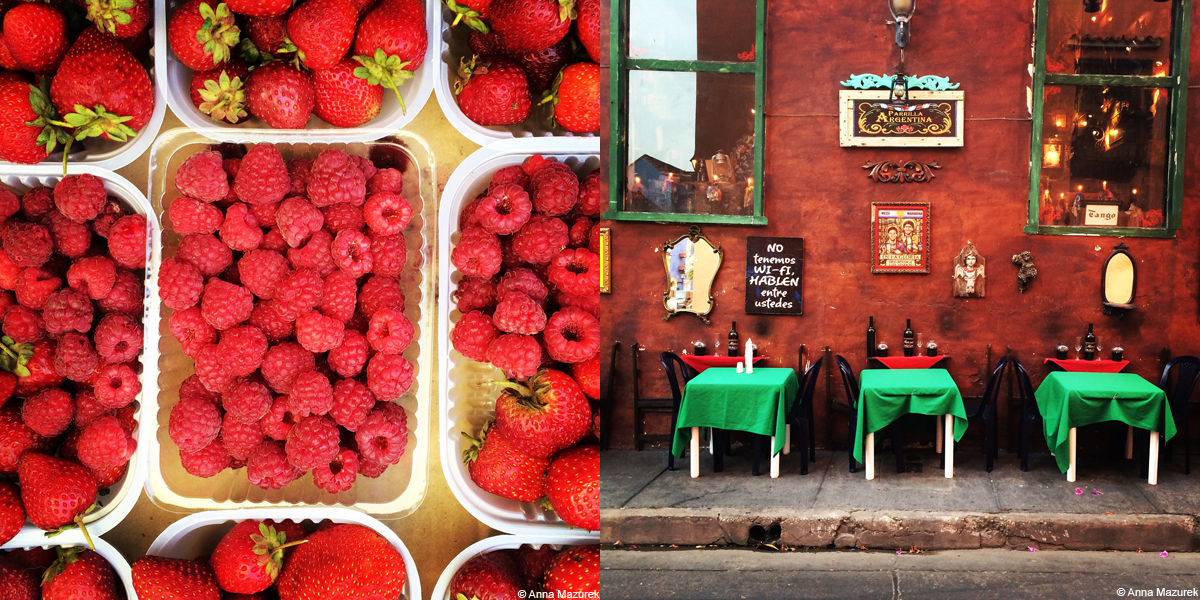
The secret to staying healthy while traveling is eating healthy and exercising. And, invest in a good travel insurance plan.
Health Insurance
Ditch your U.S. health insurance and get a good travel medical insurance plan. Most U.S. health insurance companies offer limited coverage abroad except for major emergencies, which require paying out of pocket upfront and being partially reimbursed. If you have a serious preexisting condition, research your options thoroughly. Some travel insurance policies will cover a “Sudden and Unexpected Reoccurrence of a Preexisting Condition.”
If you have health insurance through your employer:
When you quit a job in America, you receive an option to enroll in the COBRA program, which allows you to keep your same benefits but at a higher cost for up to 18-36 months. COBRA gives you 60 days to sign up, and coverage is retroactive to the date you quit. This gives you two months to start your trip and still have the safety net of COBRA eligiblity as a backup plan if you have a medical emergency. Plus, it saves the cost of paying for COBRA insurance.
Here’s what I do: I researched the cost of COBRA before quitting my job and the cost of Obama Care. I had to decide if the risk of getting sick or having a major accident was worth the cost of COBRA or Obama Care. This year, I took a risk and didn’t sign up for either but made sure I left for my trip BEFORE my 60-days to sign up for COBRA ended. If I had a medical emergency, I would have signed up for COBRA and been covered retroactively by the benefits of my previous insurance.
Prescriptions
If you take prescriptions regularly, research generic costs without insurance. Also, remember most drugs are available at a significant discount without a prescription in many places abroad especially Asia. (I occasionally use prescription eye drops. A tiny bottle costs $30 with insurance and $300 without. In Thailand, the exact same brand and batch is $7! It’s cheaper to live abroad than in America sometimes.)
TIP: Most insurance plans also offer a 90-day vacation supply of medications for travel on top of your regular monthly or 90-day supply refills. Simply call your insurance to clarify the details and start the process at least a month before your trip.
Before canceling your health insurance:
- Research international coverage options for your current plan
- If you have insurance from your employer, verify COBRA eligibility. Do a cost comparison of COBRA and Obama Care BEFORE you quit.
- Research travel insurance coverage thoroughly. Daredevils should add the adventure sports rider. My current plan is $50/month with the adventure rider and end of trip home coverage. (Travel Insurance Guide Coming Soon!)
- Non-emergency medical care and even x-rays can be significantly cheaper abroad. I paid $72 for two x-rays and an appointment with an orthopedic doctor at the nicest and most expensive hospital in Bangkok. (I was reimbursed by my travel insurance later.) I also got my teeth cleaned for $30 in Bangkok.
How do you eliminate bills while you travel? Share in the comments!
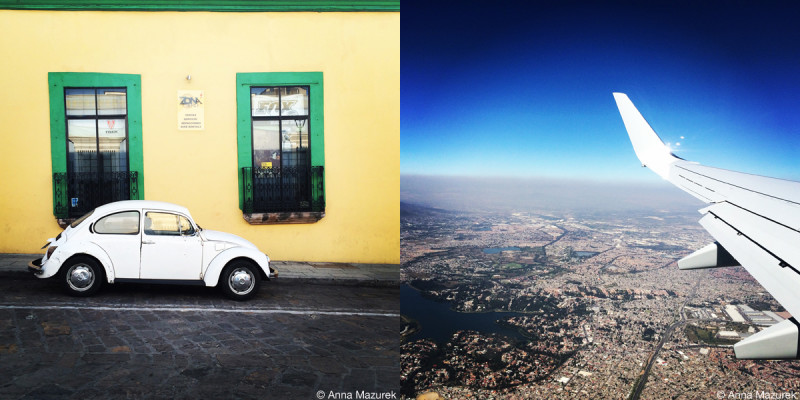
How to Cut Costs on Transport
Use Public Transport
Most large cities have efficient and affordable large-scale train or bus networks connecting the airport with the city center. (Even Delhi has a great air-conditioned metro train system.) Take a local bus instead of a taxi to the bus/train station or airport for 1/10 of the price. Daily and weekly passes are a good deal if you travel frequently. (ALWAYS get the 7-day pass in NYC.)
Many parts of the world have a system of pickup trucks with seats in the back that have routes just like buses. They will drop you anywhere for next to nothing. In Thailand, they are called songthaews. Take advantage of them!
Night Buses/Trains
Night buses/trains are my favorite form of transport. For long journeys, both help save time and accommodation costs. Most overnight trains include options for beds. The sleeper trains in Thailand, Spain and India are pretty comfy and affordable. Plus, you don’t waste a day traveling. Aside from specific areas of Central and South America, night transportation is extremely safe.
Rail Passes
England, mainland Europe, Australia and Japan have great rail pass options for travelers and students. Check prices of individual tickets to see if it’s worth it for your planned route. Plan in advance because most rail passes have to be purchased BEFORE you leave your home country. Students receive a significant discount on passes so take advantage!
Local Buses
VIP Tourist buses are an overpriced scam with blaring TVs and are often a target for thieves. Most countries have cheaper, comfy local buses for half the price. In Thailand, I always take second-class buses for half the cost. They still include large comfy seats, air conditioning, a bathroom and a free bottle of water/meal. There are even cheaper open-air “chicken” buses. These can be rough for long trips but are great for short day trips. These are completely safe in Southeast Asia, but women traveling alone should be cautious in other parts of the world.
Taxis & Tuk Tuks
Agree on a price in advance or ask to use the meter. Ask locals the fair/standard price for your route beforehand then negotiate accordingly.
Compare costs. Tuk tuks are a great deal in India but outrageous in Thailand. A metered air-conditioned taxi will be a ¼ of the cost in Bangkok. Taxi fares increase during rush hour, late at night and for airport routes. Drivers might also charge exorbitant flat rates on weekends and near tourist spots. Sometimes it’s best to negotiate a taxi to the nearest public transport station instead of your final destination then take a train/bus.
Research reputable taxi companies in countries with safety concerns. In India, I only use Meru or a private taxi provided by my hotel. In Bogota, I use the Tappsi app for safe taxis.
Flights
– Research local budget airlines. They don’t always show up in big travel search engines. (I find Kayak and Skyscanner are the best search engines with the best deals and airline options.) Book with the airline directly if possible. Some won’t accept foreign credit cards so book through sites like Cheaptrip.com for airlines like Indigo in India.
– Consider flying to the closest major city to your destination. Then, take public transport or a budget airline flight. I always bus/train combo to Southern Thailand from Bangkok to save flight costs.
– Check for luggage fees and pay them in advance. Some budget airlines increase luggage fees significantly on the day of the flight and charge heavily for overage. Print your boarding pass because some also charge if you don’t!
– If a city has several airports, consider transportation costs to the city from both airports. Budget airlines can fly into the smaller, domestic airports with less transport options.
– Be aware of arrival times. Is affordable/safe transport available at 3 a.m.? It’s better to sleep in the airport for a few hours and catch the first train into the city than fork out a fortune for a taxi in the middle of the night in a strange city. It also saves accommodation costs. Considering paying a little extra to fly in at a more reasonable time if transport is outrageous during the night.
– Keep track of your frequent flyer miles. Sign up for the FF mile programs for the major airlines in your country/area. Most major airlines are part of global alliances allowing you to earn miles on another carrier’s flight. I fly at least once a year on miles. (Don’t worry – I’ll post a guide to FF miles soon.)
– Government-owned airlines in third-world countries are notorious for being unreliable and can have sketchy safety records. Do your research. Foreign owned airlines are usually nicer, safe and more reliable. (Indigo is my favorite budget airline in India, and they fly to other parts of Asia as well. Interjet is the best in Mexico and Central America. Both are super nice!)
General Transportation Tips
1. Buy tickets in advance
Purchase tickets directly at the stations. Travel agencies and hostels add commission. Prices can also be significantly lower in advance. You also get first choice for seats, which is ideal if you are prone to motion sickness. (The front row on the right side usually has the most legroom.) When you arrive in a city at a station, consider buying your departure ticket before you leave the station.
2. Get it in Writing
If you change a ticket, ALWAYS do it in person and get it in writing. Always get a printed copy of any ticket. If you only get a receipt, be sure to have the contact info for the person you bought it from if an issue arrises.
3. Consider Transport Options
When deciding between different forms of transport, factor in the cost and difficulty of getting from the airport/station to your destination. Your arrival time will be the main factor. Consider the total cost of getting to your accommodation, not just the cost of getting to the city.
4. Ride Shares
Share rides with other travelers to airports/border crossings. Make friends and ask their final destination. Ask local travel agents for available ride shares and compare with taxi rates. Sometimes it’s a better deal and less hassle to go with a travel agent.
5. Skip Airport Taxi Surcharges
Grab a taxi at the departures hall in the airport to avoid paying the extra airport taxi fee at arrivals. The minute someone gets out of a taxi, I ask the driver if I can have a ride. (This worked well for me at Bangkok’s main airport (Suvarnabhumi) and saved a ton of time.)
6. Take a Boat
Ferries are totally reliable method of transport and a fraction of the cost of flying. I recently took a ferry from Panama to Colombia. There’s no land crossing between the two countries due to political unrest and jungle terrain. Flying from Panama City to Cartagena was close to $370 ONE-WAY for an hour flight. (This is ridiculous considering a friend flew one-way from San Francisco to Cartagena to meet me for less than $300!) The 18-hour ferry was $150 for a private cabin and $100 for a seat. (I did the cabin.) Considering I’m technically unemployed and living on my savings, I figured 18-hours of my time was worth saving the $200. Plus, I got a ton of work and reading done. And, I met some new amazing friends!
In coastal towns, water taxis and boats are the best and fastest option. Negotiation is key. Ask people at the port if they are going the same area to help reduce the cost for everyone.
7. Take Advantage of Free Ride Promos
Sign up for mobile taxi services with Uber and Lyft. Your first ride is free, and you get a free ride for each person you refer. Refer anyone traveling with you so you both benefit with all the free rides. You’d be surprised how many cities in the world use both services!
Do you have any tips for cutting costs on transport? Share them in the comments below!

How to Eat Well for Cheap

Left: Dragon fruit is cheap in street markets in Thailand. Right: Pumpkin soup at my favorite cafe in Laos – JOMA Bakery!
Food is my biggest expense. I will pay $4 for my accommodation and spend $15 on breakfast. I like to eat. Luckily, fresh, quality food can be significantly cheaper abroad because the produce is local and not shipped across the world.
Eat with the Locals
If a restaurant is full of foreigners, it’s not going to be cheap. Street food and local restaurants offer the best quality food at the cheapest prices. A meal at a street market in Thailand will only cost a couple dollars. You can get a street quesadilla for $1.50 in Mexico. Most local markets have a section of vendors serving prepared meals. Follow the crowds of locals. (Street food is pretty much safe. Be careful in India.) Ask your hostel or accommodation for suggestions of great places where they—not the tourists—eat.
Food Courts
All the big fancy malls in Bangkok have amazing food courts with delicious and cheap food stalls with dishes less than $2. Avoid the proper restaurants that surround the food court. Even ritzy Singapore has large hawker centers where you can get a meal for less than $5 and fresh juice for $1.50.
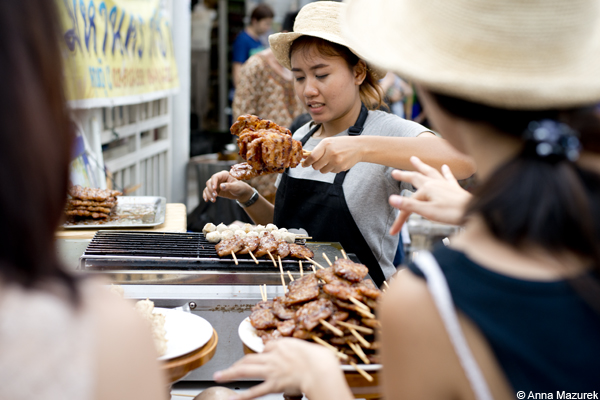
My favorite street food in Thailand are the chicken and pork skewers cooked with sweet coconut sauce. Only 30 cents each! For dinner, I’ll eat two of these and two bags of sticky rice. Grand total: $1
Skip the Soda
Drink water or fresh juice. It’s cheaper and healthier than a soda. Fresh squeezed juice is rough a $1/glass in Asia and Latin America.
Pack a Water Filter
Buy a water filter and filter you own instead of wasting money on plastic bottles, which are bad for the environment. I recommend Sawyer’s Mini Filter. It’s tiny, inexpensive and easy to use. I’ve been using it for the past four months in Central and South America. Also, invest in a good insulated reusable water bottle like Klean Kateen. Avoid anything that’s not BPA free or aluminum. Stainless is easy to clean and keeps beverages colder longer.
Both the water bottle and filter will save you a fortune in airports. In Mexico, bottled water was five times more expensive in the airport. I simply filtered the bathroom sink water.
Free Breakfast
Look for accommodation that includes free breakfast. Be sure to inquire about the type of free breakfast. I just emailed two hostels in Medellin, Colombia asking what they offer for breakfast. The one with the best breakfast gets my business. Check hostel reviews – if the breakfast is bad, it will be noted.
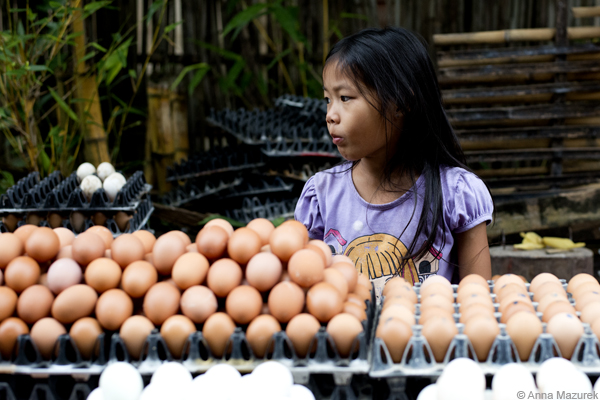
I love that you can buy eggs individually in street markets across the world. Morning market in Luang Prabang, Laos.
Cook
Most hostels have full kitchens. I cooked dinner every night for a week in Oaxaca, Mexico with some new friends from my hostel. We each spent $2/night on food at the local market. We had good quality and hearty meals filled with tons of local, fresh vegetables and even homemade tortillas from the street market. The best thing about traveling is that you can buy produce and eggs individually so it’s easy to buy exactly what you need!
Peanut Butter
Nothing will get you through long bus rides or early mornings like peanut butter. Food at train/bus stations is usually overpriced and horrible. It’s also notorious for food poisoning. Make a peanut butter sandwich for the road and treat yourself to a good dinner when you arrive. Buy a jar of natural peanut butter before you leave home at Trader Joes or Whole Foods for $3. (By natural, I mean unsalted and no artificial sweeteners.) Grab some local honey and bananas at the street market for a real treat. I’ll grab bread from a local bakery and make sandwiches on the train. Skip the ramen – it’s gross and bad for you.
Don’t Skimp on the Tip
Traveling on a budget isn’t an excuse to be cheap. Consider tipping in your budget when eating out. Guidebooks will give you a good idea of what is appropriate for local customs in restaurants versus taxis etc. Bartending and waiting tables funded a great deal of my travels. Tipping is heavily relied on for survival in many parts of the world especially when non-democratic governments are involved.

